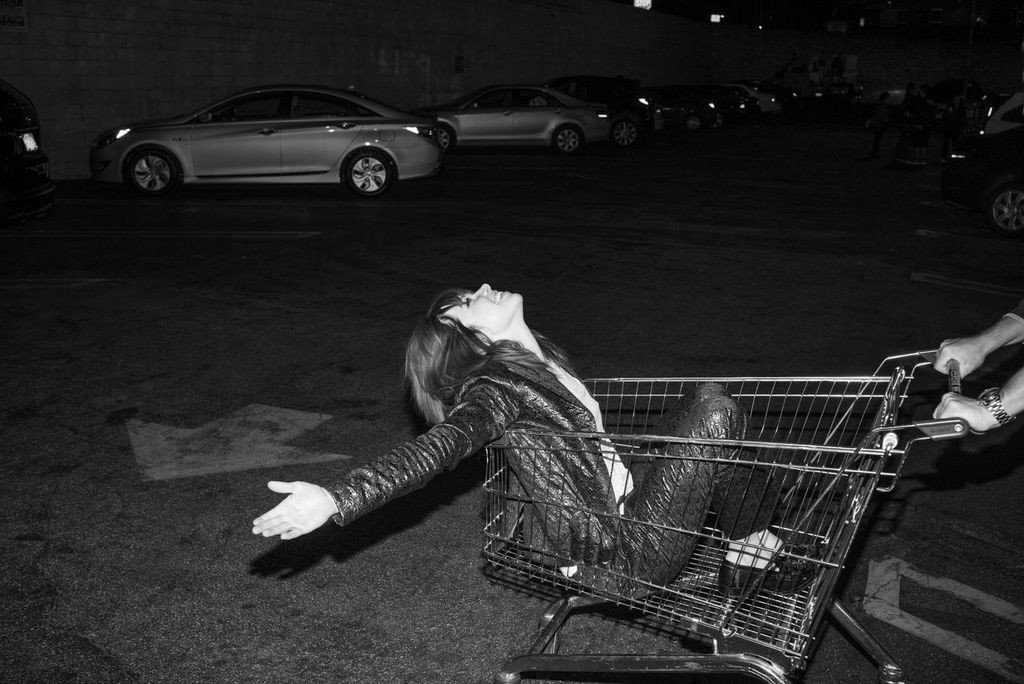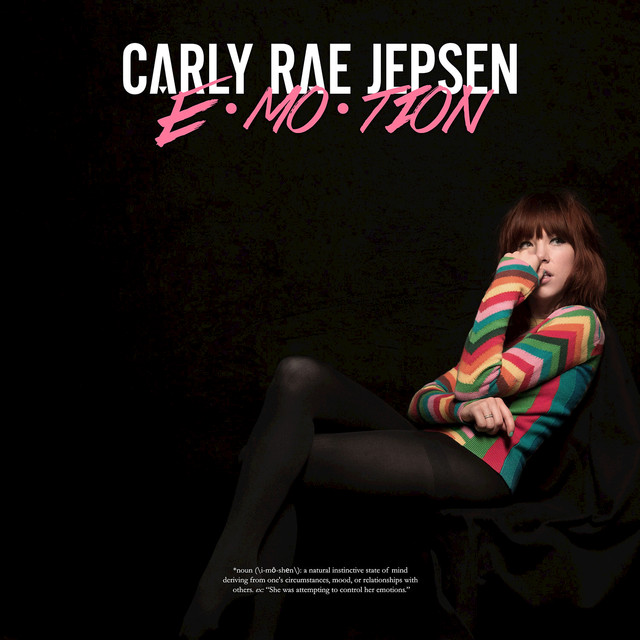Why Carly Rae Jepsen’s ‘E•MO•TION’ Was A Cult Hit But A Commercial Flop
--

This article originally appeared on FasterLouder.
—
There was a time in 2012 when it became impossible to stand in a store for longer than five minutes and not hear Carly Rae Jepsen’s ‘Call Me Maybe’.
You can probably hear it in your head even now: that bubbly opening riff, Jepsen’s coy and sugary vocals, the strings delivering that euphoric chorus hook. There was no denying it’s power — and it’s ubiquity — was astonishing. It wasn’t just the song of the summer, it was the song of the year, and beyond.
But overnight success is perilous, and Jepsen felt it almost immediately. Her album Kiss was the classic case of rushing to capitalise on the popularity wave at the cost of quality — it was durable, yielding some decent songs, but it was ultimately underwhelming. The single ‘Kiss’ only reached number 32 on the Billboard charts, and the album has yet to top sales of 300,000 in the US.
For the next couple of years, Jepsen fell into relative obscurity. There was the prospect of being a one-hit wonder for the ages. Prior to this bright burst of fame, Jepsen was already a household name in her native Canada – where she was a finalist on Canadian Idol in 2007. She grew up in the world of musical theatre, which is where she now returned after ‘Call Me Maybe’ – trading pop star fame for a stint on Broadway as Cinderella.

When she eventually reemerged in 2015, some pivoting had taken place. Suddenly she was flanked by Rostam Batmanglij, Dev Hynes and Ariel Rechtstaid — hot property producers that have had hands in many of the indie pop crossover tracks of recent years. Her new single ‘All That’ was named Best New Music by Pitchfork. Discourses scorning Jepsen music for being pre-pubescent began to evolve into praise for Jepsen’s artistry.
Through the middle of the year she drip fed songs from her upcoming record E•MO•TION, and instead of receiving a rapturous audience with those that shot ‘Call Me Maybe’ to the stratosphere, she found popularity among indie blogs and hardened music critics. She became the leader of a new breed of ‘Mindie’ artists – that is, a major label artist with indie cred. Jepsen’s narrative – a pop dynamo rebuilding as an indie darling – was powerful, and the media fell hard.
“She became the leader of a new breed of ‘Mindie’ artists – that is, a major label artist with indie cred”
When E•MO•TION eventually dropped it received almost universal acclaim. In a year of big pop albums (Adele, Justin Bieber, Lana Del Rey) it reigned supreme.
With good reason — it was an undeniably excellent album. Jepsen captured the joyous synth pop of the ’80s and imbued it with glittering modern production elements. Tracks like ‘Making The Most Of The Night’, ‘Your Type’, ‘Run Away With Me’, and ‘EMOTION’ contain some of the best pop writing of all time. Big universal feelings like love, longing, and heartbreak are distilled into gut punching one liners that manage to convey all at once — what great pop lyricism should do.
Jepsen didn’t have to claw back respect from the music community, it was rightfully handed to her on a platter.
At the end of the year, E•MO•TION was among most ‘Best Of’ lists – ranking #3 on Stereogum, Noisey, and The Village Voice’s prestigious Pazz & Jop critics poll, as well as clocking in on the Rolling Stone, SPIN, Consequence of Sound, and The Guardian lists. Her social platforms raked in millions of new followers. Her cult following began flourishing.
So one would have reasonably expected that E•MO•TION would have at least made a dent in the charts, or at least beat Kiss, but it didn’t. It debuted at #16 on the US charts, #37 in Australia, and at #8 in her home country of Canada.
The only country it made an impact in was Japan, where it was certified gold, although even that ranks as under-performing in the global pop arena. It didn’t even top 17,000 in sales in the first week in the US. By comparison, Lana Del Rey’s Honeymoon sold 600,000, and Taylor Swift’s 1989 topped 1.28 million.

A reason for the weak sales lies in the rollout of the release. Early singles appeared in April in the US, and yet the album was held off until August, and until September in Europe. Instead they chose to release the album in Japan in June, meaning that almost immediately the album was leaked — so by the time the it was released in North America, the sheen had already worn off.
Whatever way you look at it — whether she wanted to test its reception overseas, or perhaps let the album develop away from the usual press rigmarole — it was a bad way to release an album if she wanted decent sales.
Jepsen also failed to capitalise on the ground swell of popularity and lock in a big tour straight away — instead she has only played limited in Asia and North America shows, and only months after E•MO•TION‘s release.
Another problem is that within the crowded pop landscape, Jespen is fairly indistinct. She remains without a persona – without the ‘fuck you’ attitude of Rihanna, or the Total Queen of Beyonce, or even the jilted girl next door of Taylor Swift. Her album is without any kind of artifice and as such, it’s difficult to imitate her and follow her in the way that it’s easy to be a ‘Swifty’ or a ‘KatyCat’.
The audience that would typically drive album sales (teenagers) are not flocking to her in any large numbers. The demographic at her live shows has shifted from teens to adults. It’s demonstrable in that she clocked in a well received performance at Pitchfork Music Festival, performing alongside Beach House, Blood Orange, and Miguel. In 2012, the idea of her performing at that festival would have been a fairly ridiculous proposition.
So after yet another commercial album flop, Jepsen defies expectations – because even with E•MO•TION failing to generate anything close to impressive sales, her staying power hasn’t dimmed. Two years after its release, we are still talking about it, still writing about, still dissecting it. Not many other albums in the last decade can claim the same impact on popular culture.
Being a cult artist is hardly a new thing — but to become a cult favourite when you are responsible for one of the most pervasive pop hits of the decade, and you have released the best pop album of recent times — is a little out of the ordinary.
But then again, this is what Jepsen does. She is herself, regardless of the numbers.
—
Jules LeFevre is Staff Writer at Music Junkee and inthemix. She currently figuring out the best way to tattoo all the lyrics of Carly Rae Jepsen’s E•MO•TION on her skin.

